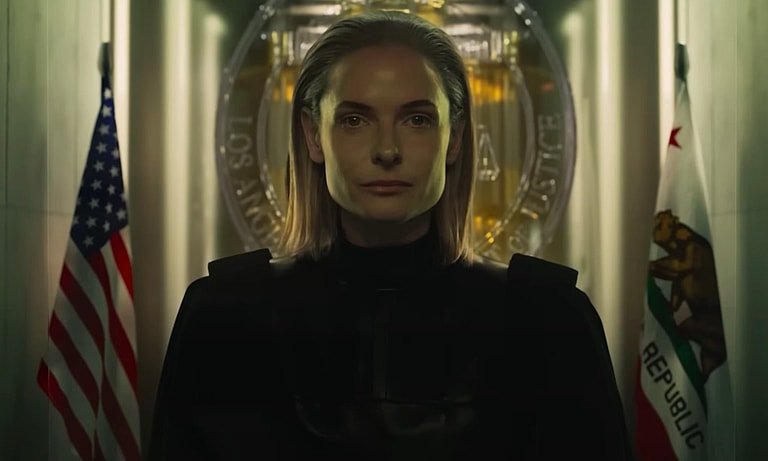Knives Out: Glass Onion
/Making a quick comparison between the trailer for the series’ debut back in 2019 and the current offering by writer-director Rian Johnson (Looper, Brick; Star Wars Episode VII: The Last Jedi), there is a bit of an aural link, though perhaps not an obvious one. Both trailers start with the same note, but in this latter instalment everything is bigger and brighter: a mildly dilapidated mansion is traded up for a private Greek island with sun to spare and a single piano is replaced by thrumming strings. At 0:13 the director’s title card is prominently placed, featuring what sounds like the click of a camera synched to the music. At 0:22 a single, reverberant piano note is used—a well-trodden trope, but at least appropriately placed to signal the arrival of the recurring and central figure of the series, detective Benoit Blanc (Daniel Craig), sporting his trademark Foghorn Leghorn-esque Kentucky accent.
The trailer proceeds on a fairly dialogue-heavy tilt, punctuated by diegetic sounds such as gunshots, as well as non-diegetic sounds that temporarily cut the music out—such as what sounds like a sharpening knife right before Blanc delivers a one-liner. A montage sequence starting at 0:58 introduces us to the second part of the trailer, having established the murder mystery conceit, characters, and setting. Notice at 1:00 how the gunshot coincides neatly with the flashing screen transition—and the sounds and images continue to overlap, in a cascade of revelations. This leads to one of the characters’ swearing being cut off in a blackout at 1:03.
At 1:06 the music is markedly different, with a quick, compound tempo in the strings, as Blanc declares the case and his suspicions. Overall, the tone shifts towards the urgent and consequential, as opposed to the stylistic markers that leaned more towards comedy trailers up to this point. The use of sound effects as musical punctuation between cuts continues here, until another comedic one-liner at 1:36 cuts the tension.
The final third of the trailer reconciles these two positions, achieving the irreverence that the Knives Out franchise is known for—and it seems to have achieved this status despite this being only the first sequel. The action-heavy musical arrangement continues alongside the comedic dialogue, achieving a crisp and clear atmosphere that is frenetic without being overly serious. The effect is one of constant percussive hits, even through the normally expressive string instruments.
As much as the musical accompaniment serves its purpose, however, it also sounds mildly haphazard, with next to zero focus on melody. The original instalment’s trailer, in contrast, used a creative arrangement of Frank Sinatra’s “I’m Gonna Live Till I Die”. One can’t help but be a bit disappointed in comparison with the overall score for the Glass Onion trailer (as calculated and measured as it is in following the action while effectively balancing the tone). While the use of, say, the eponymous Beatles track would have been perhaps as obvious as the rights would be hard to obtain, it would have been interesting to have had at least another layer of meaning that song lyrics might offer, for example. Still, the overall arrangement, its flourishes, and perhaps especially its use of thematic, non-diegetic but complementary sound effects set an effective aural stage for Benoit Blanc’s second case for the big screen (with its limited theatrical release). It manages to thread the needle of offering the thrill and suspense requisite to the murder mystery genre while also conveying the unique sense of fun and comedic verve that made Knives Out a franchise-worthy cinematic endeavour.
Knives Out: Glass Onion arrives in theatres in a limited release November 23 before a general release on Netflix just in time for the holiday.
— Curtis Perry







